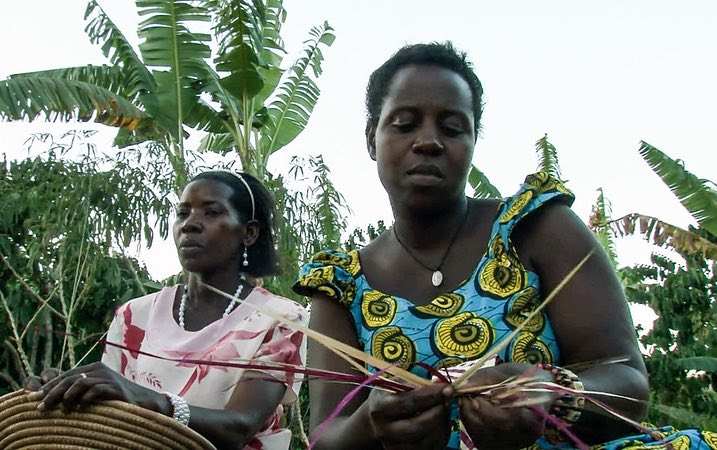Empowering women is a goal of many development programs, both as a primary objective and a tool for increasing family welfare and stimulating economic development. Conventional wisdom suggests that empowered women invest more in children, and this has translated into policy: Many large-scale cash transfer programs are designed to target women. However, the evidence to support this idea is limited to a small number of studies, mostly reflecting shifts in empowerment driven by increases in total household resources.
In this study, available as an IZA-Institute of Labor Economics working paper, we test two novel interventions designed to empower women: An economic intervention that transfers resources within the household from the husband to the wife, and a behavior change intervention that promotes a balanced approach to household management. We document the impacts of these interventions on different domains of empowerment and then study the interventions as an exogenous shift in empowerment to examine the impacts on child and household welfare.
We find that the economic intervention increases women’s access to resources and agency by a substantial amount. In contrast, the behavior change intervention increases empowerment through agency and achievements, with no impact on access to resources. However, we find no changes to most welfare measures that we study, though there is an increase in life satisfaction.
We implement our interventions as a randomized-controlled trial in the Jinja region of Uganda, among smallholder farmers who sell sugarcane to a large company. The economic intervention consists of the transfer of contracts to grow and sell sugarcane from the husband to the wife, entitling women to receive the revenue from the sale of the sugarcane, and involving them in the logisticafl aspects of managing the contracts. The behavior change intervention is a three-day “Family Vision Workshop” attended by both the husband and the wife, designed to encourage the recognition of the contributions of all household members and arrive at a balanced household management system with equitable access to resources. It was adapted from the change catalyst workshop of the Gender Action Learning System (Mayoux, 2012).
Households were divided into four groups: Those offered the behavior change intervention only, those offered the economic intervention only, those offered both, and those offered neither. The behavior change intervention took place first, at the end of 2016: 75% of invited couples attended at least two days of the workshop, and 66% attended all three. Anecdotal responses to the workshop were overwhelmingly positive, with couples reporting that they enjoyed it and found it worthwhile.
The economic intervention was implemented in the following months. Selected households were visited by project staff and offered the opportunity to register a sugarcane block with the wife. The project made the transfer process easy for the households, streamlining the processing of paperwork and opening of associated bank accounts so that women would not need to travel to the company office. Takeup was high, with 71% of households completing a registration.
We measure the impacts of these interventions using an endline survey conducted in the second half of 2018. Following the work of Kabeer (1999), we study three components of empowerment: Access to resources, agency, and achievements. Our analysis focuses on a composite index for each of these components, consisting of survey measures that we hypothesized might be impacted by the intervention. Access to resources includes a respondent’s own cane income and control and a measure of personal expenditures. Agency includes a range of decision-making questions and a self confidence module. Achievements is measured by self esteem, life satisfaction, and freedom from domestic violence.
We find that the economic intervention had a large impact on access to resources and agency, and a more limited impact on achievements. Conversely, the behavior change intervention had no impact on access to resources, but strong impacts on agency and achievements. We find no evidence that combining the interventions results in stronger effects.
Interestingly, when we examine the different components of agency, we find that the interventions acted differently. The economic intervention positively affected women’s ability to make decisions across a range of areas, while the behavior change intervention improved their self confidence, including speaking in groups and business negotiations.
We also look at possible mechanisms behind changes in empowerment. We find that the economic intervention had large effects on women’s cane ownership, participation in cane management, and measures of financial inclusion. We also observe increases in marital quality and communication and perceptions of gender norms. The changes from the behavior change intervention are driven by increases in perceptions of gender norms and improvements in marital quality and communication.
Though women’s empowerment is often considered a driver for economic development, in this context we observed no increase in household cane production or associated change in total household resources with either intervention. Additionally, and contrary to the popular wisdom on the secondary benefits of women’s empowerment, we find no impact of the interventions on household food security, children’s health, or measures related to children’s education.
These results may suggest that female empowerment does not necessarily lead to improved household welfare, especially for children, particularly in the absence of extra-household transfers. However, we do document increased life satisfaction for both men and women, confirming that empowerment is a worthy goal in its own right.
Kate Ambler is a Research Fellow with IFPRI’s Markets, Trade, and Institutions Division (MTID); Kelly Jones is an Assistant Professor of Economics at American University in Washington, DC; Michael O’Sullivan is a Senior Economist at the World Bank Gender Innovation Lab.
This work was funded by the World Bank Umbrella Facility for Gender Equality, the Africa Gender Innovation Lab, the IFPRI-led CGIAR Research Program on Policies, Institutions, and Markets (PIM), and the IFPRI Strategic Innovation Fund.







